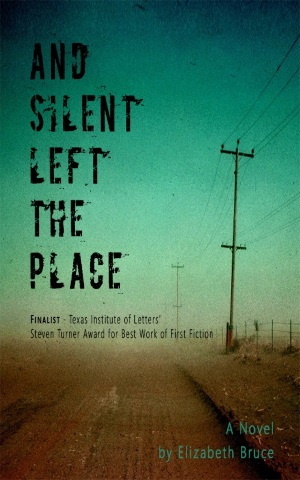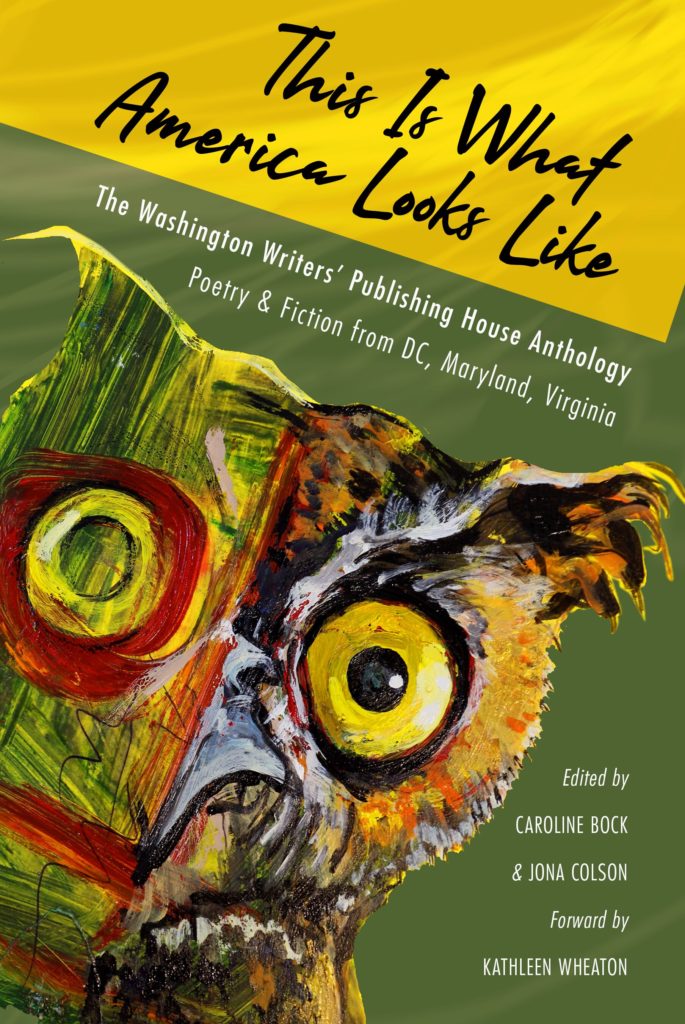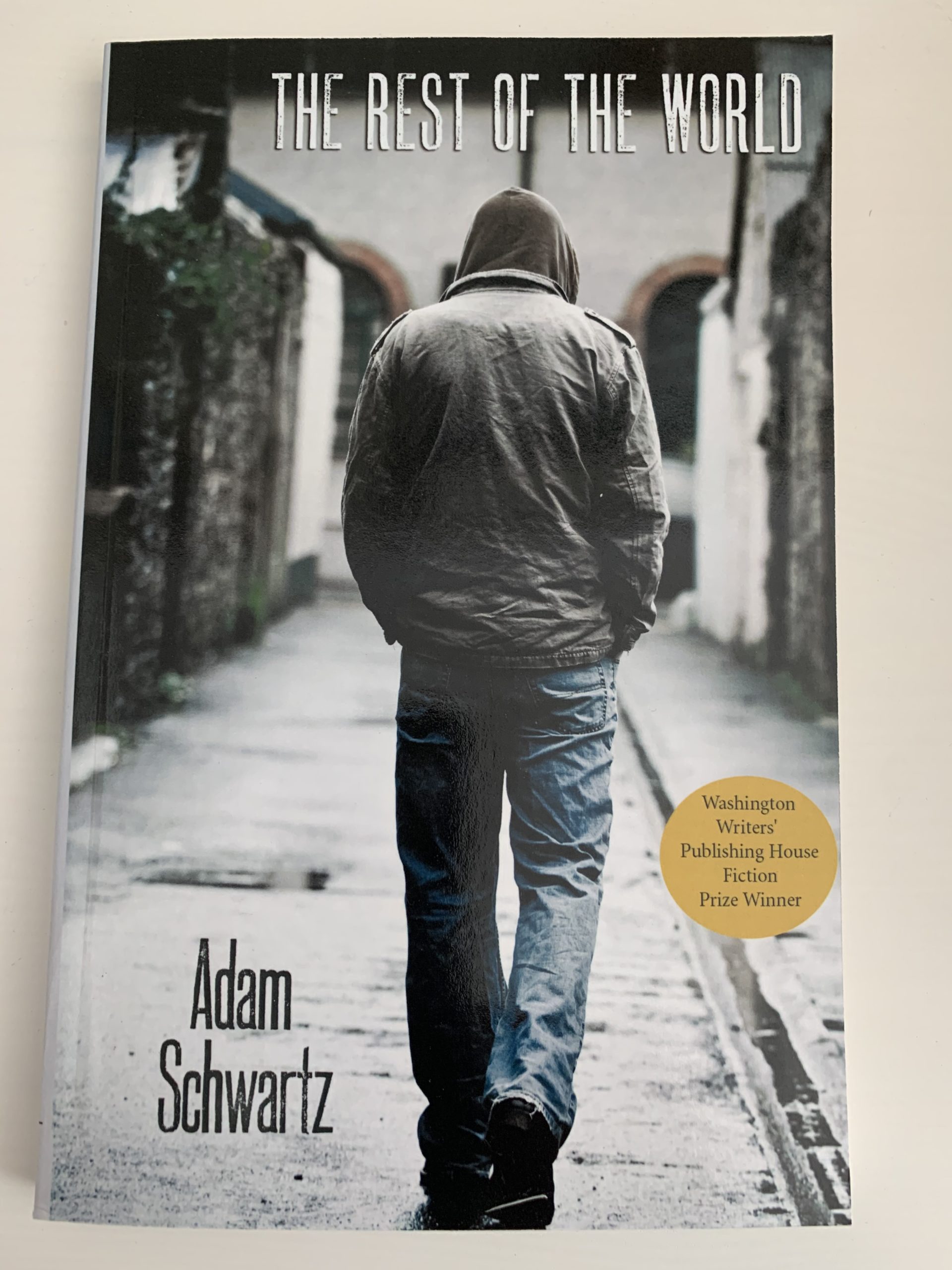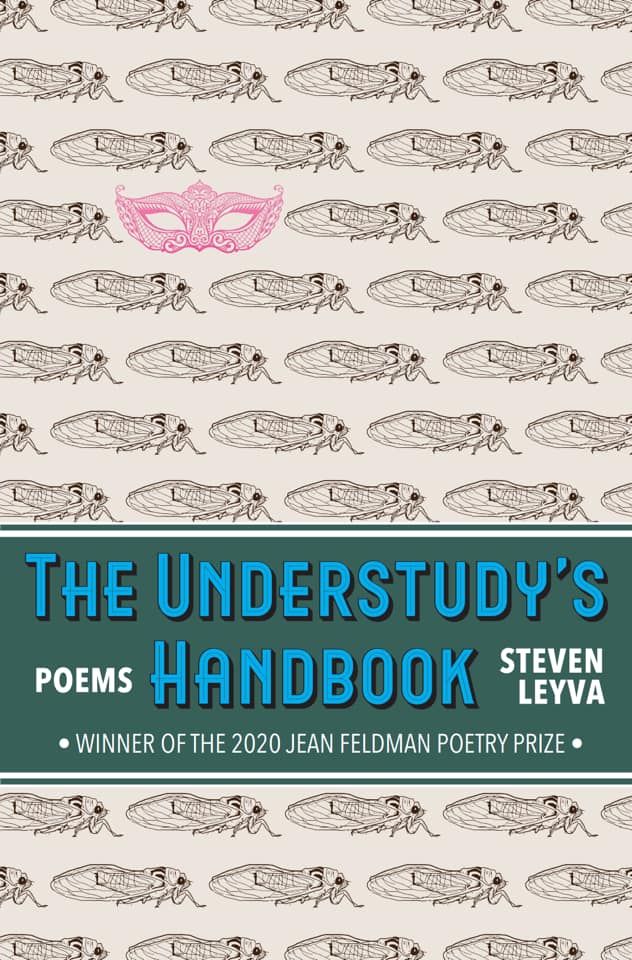WWPH Writes: Issue # 26

Welcome to Issue 26, and to our first anniversary! We have been publishing WWPH Writes for over a year and celebrating over 50 writers! In this issue, we highlight poet, activist, and singer, Natalie E. Illum, and writer, Carly Feyerabend. In Illum’s poem, “The 18th Street Lounge Stopped Dancing After 29 Years,” the narrator reminisces on D.C.’s bars and music venues, and the pre-pandemic days. The poem speaks of isolation and loss—something that we are still seeking even as music and dance re-blooms. Carly Feyerabend’s flash fiction, “Cecil Jenkins’ Nightstand,” also remembers a life lost, a box “full of things from [Cecil’s} life.” Both works ask us to remember the past that informs the future. We hope you have enjoyed reading our journal for over a year, with many more to come!
Join us on Sunday, June 5 from 5-6:30 p for a VIRTUAL WWPH CELEBRATION with The Writer’s Center of Bethesda. We will be toasting new WWPH poetry editions by Grace Cavalieri (Maryland State Poet Laureate and one of our WWPH co-founders) and Myra Sklarew (Professor Emerita, American University) and more! Register for our virtual link below. Lastly, to celebrate our new editions, we have a Tiny Poem Challenge inspired by a Grace Cavalieri poem…submit to us by Monday, May 30th…more details at end…read on!
Jona Colson
Poetry Editor, WWPH Writes
WWPH Writes: Poetry

Natalie E. Illum is a poet, disability activist and singer living in Washington DC. She is a four-time recipient of the DC Commission on the Arts & Humanities Literary fellowship, and a multiple Pushcart prize, Best of the Net, and Best New Poet nominee. She was a founding board member of mothertongue, a LGBTQA open mic that lasted 15 years. She competed in the National Poetry Slam circuit and was the 2013 Beltway Grand Slam Champion. She has an MFA from American University. You can find her on Instagram and Twitter as @poetryrox, and as @allhermususdc.
Something more! “Not Speaking in Metaphor” is the debut album from DC-based All Her Muses (released May 12, 2022.) The album features original songs by Illum and musician Grey Jacks. This record is part punk, part heartbreak, part dance mix – inspired by the unexpected breakups, the depression cycles, and a few bad decisions. That’s pretty much our wheelhouse. The album can be purchased at allhermuses.com
The 18th Street Lounge Stopped Dancing After 29 Years
in Dupont Circle. The first place to flatline its DJs and drink specials. The Big Hunt’s
comedians just stopped being funny. The Black Cat’s punk scene couldn’t afford
to be independent. We didn’t riot the Capital
when our businesses took unpaid sick leave. We volunteered our sympathies; diagnosed our wallets with blood clots. We left some
without inhalers, like we always do. Changed the names of sidewalks while the joggers ran unmasked. What did you learn here?
The National Guard protected everything but the ventilators.
This is supposed to be a poem about dancing.
Who still knows how to tango? Who drank tequila or bleach instead? My best friend learned how
to roller skate and blackout. I youtubed how to become
a cardio expert from a wheelchair. This is what isolation is for. You should still produce
even from an ICU bed. Make a playlist while you wait, they told us someday we’ll walk
in the rays of the beautiful sun. Some day when the world is much brighter.
© Natalie E. Illum 2022
WWPH Writes: Fiction
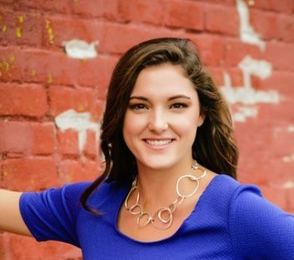
Carly Feyerabend graduated from UVA in 2019, where she studied English and creative writing. She currently resides in the Adams Morgan neighborhood of Washington, D.C., where she can be found trying new restaurants, attending live shows, and taking long walks. As a writer, Carly seeks to explore the magic of the present moment.
Cecil Jenkins’ Nightstand
On Tuesdays, I think about Cecil Jenkins and the mahogany nightstand beside his bed–a man I never knew and a table I knew too well. I imagine Cecil Jenkins once might have climbed atop this piece of furniture to change an air vent or remove a forgotten strip of painter’s tape from a freshly colored wall. Like Cecil, the table was made long ago, so it could bear the weight of heavy things. I worry that people nor tables are made this way anymore. Back when I didn’t know Cecil, his nightstand kept a stack of literature on neglected topics and a glass of water with too many bubbles creeping up its sides. I could tell you this: his furniture suggested that he was a simple man, sturdy, practical, and abiding.
Every Tuesday, I used to clean Cecil Jenkins’ house while he and his daughter visited the local library for a literary luncheon, which, as gray and stifling as it sounds, was their ritual, and for four years, they never missed a Tuesday. Cecil was already old back then, but I was vibrantly young, and my knees could still bear the weight of large boxes and heavy secrets.
I never met Cecil Jenkins, but I can tell from the way he kept his bird feeders brimming with seeds and nuts, and even raisins, which he emptied from small red boxes and stored in a brown bag labeled “birds–” and by the way, he took months to remove the Christmas cards of former colleagues and distant cousins from the mantle, that the only un-sweet thing Cecil ever did was call his daughter Secily. Now you might think I’m being critical, but here’s the thing I haven’t told you: Cecil spelled Secily not like Cecil-with-a-Y but with an S, like Sicily-with-an-E. Every Tuesday for those four years, and on many Tuesdays after that, I’ve wondered why he did this. But now that I am as old as Cecil was back then, I’ve come to realize that I didn’t know everything about Cecil Jenkins. Like most people, Cecil made do with the cards in his stack, and like most people who get the chance to grow old, he must have borne a few heavy secrets in his tired knees, too.
Usually, I arrived at a quarter past one. It used to be that I was always running late, but then it became a thing–that I couldn’t meet Cecil Jenkins. It isn’t that I didn’t want to meet him, it’s that I couldn’t.
It’s been nearly four-thousand Tuesdays since I last dusted Cecil Jenkins’ mahogany nightstand, but I still can’t put a bony finger on why I couldn’t meet him. I just couldn’t, and that’s all the thinking I’ll do about it today.
Secily always left messages with my mother, either complementing the way I had alphabetized the literature on her father’s nightstand or marveling at a thing I had done to cover over the fact that I had been sorting through the pieces of her father’s private life.
I already explained everything I know about not wanting to meet Cecil Jenkins, but, for whatever reason, I did want to know him. My mother always passed along the message that Secily had left “a little something” in a pinkish envelope in our mailbox, and that they would see me next week. I quickly learned two things: 1. It was always two dollars and 2. They would never see me next week. I made sure of this by arriving at a quarter past one, but I think I’ve already told you about that.
The other thing about Cecil Jenkins’ nightstand is that it housed a box of old things. My father, who I never knew for a different reason, and who trailed two generations behind Cecil Jenkins, kept a similar box tucked away in his long-abandoned nightstand. After all these years, I’ve come to realize that my father’s box was different from Cecil’s box for one important reason. My father’s box was full of things that were old. But Cecil’s box was full of things from his life: a pipe, an embroidered handkerchief, a war medal, gold coins, family papers, a pocket watch, and a note scribbled by a child, presumably, Secily.
You see, Cecil Jenkins’ box grew old like he did, organically and without much notice. His things were a part of him. My father’s things were never part of him, but part of a history that he felt called to protect. So even though Cecil and my father might have looked after their boxes in the same way, it wasn’t the same because my father’s box would have kept someone else’s secrets, while Cecil’s were entirely his own.
It isn’t Tuesday, so I don’t know what got me thinking about Cecil Jenkins, his nightstand, or his box of old things, which I suppose I should never have known about to begin with, but I don’t see how it matters much anymore. After all, you know we all bear a few secrets in our bony old knees.
©Carly Feyerabend 2022
WWPH Community News
JOIN US! Sunday, June 5th from 5-6:30 pm…our WWPH Celebration is now virtual…
We had planned on an in-person event, however, out of an abundance of caution with Covid, we are moving it to a virtual celebration with The Writer’s Center. This is now a FREE EVENT and OPEN TO ALL. Our venerable cooperative press is celebrating the June publication of a new edition Why I Cannot Take A Lover by Grace Cavalieri (Maryland Poet Laureate) and Altamira by Myra Sklarew (Professor Emerita, American University) featuring forewords by the new co-presidents of WWPH, Caroline Bock and Jona Colson. Readings by Grace Cavalieri and Myra Sklarew, a special tribute to outgoing WWPH president Kathleen Wheaton, as well as news on upcoming books, will topline the festivities. REGISTER NOW here: www.writer.org/event/wwph-celebration/
THE WWPH TINY POEM CHALLENGE
In the new edition of Grace Cavalieri’s poetry collection Why I Cannot Take A Lover,
(Washington Writers’ Publishing House – available June 14, 2022),
there is an evocative three-line poem:
DON’T UNDERSELL YOURSELF
Consider the brown cow
Eating green grass
Giving white milk
Write your own ‘tiny’ poem about your considerations, about possibilities, about summer …and EMAIL it to us at WWPHPRESS@GMAIL.COM by Monday, May 30th at 11:59 pm –make sure you include ‘Tiny Poem Challenge’ in the subject line. The best ‘tiny poems’ will be published this July in WWPH WRITES.
MORE WWPH NEWS
Another big shout out to our 2022 fiction and poetry winners: “The Witch Bottle and Other Stories” by Suzanne Feldman and “You Cannot Save Here” by Anthony Moll. Look for their books to be published on September 28, 2022 by The Washington Writers’ Publishing House. We will be sharing much more news about these exciting titles in the coming weeks! And our 2023 manuscript contests will open on September 1st, so keep reading upcoming issues of WWPH Writes for details.
Thinking of submitting to WWPH Writes? We are looking for poetry and fiction that celebrate, unsettle, and question our lives in the DC, Maryland, and Virginia area (DMV) and our nation. We seek work that is lyrical and dynamic, and we believe in cultivating a diverse and inclusive environment of content, form, risk, and experimentation. New perspectives and voices with craft and fierceness are strongly encouraged to submit. It’s FREE to submit, but you must live in the DMV. Please send us your best work–challenge us with your ideas and writing. Submit here.
l
THE WASHINGTON WRITERS’ PUBLISHING HOUSE has a Bookshop! Click here and browse all our titles at our bookshop.

Caroline Bock
Fiction Editor, WWPH Writes

Jona Colson
Poetry Editor, WWPH Writes


